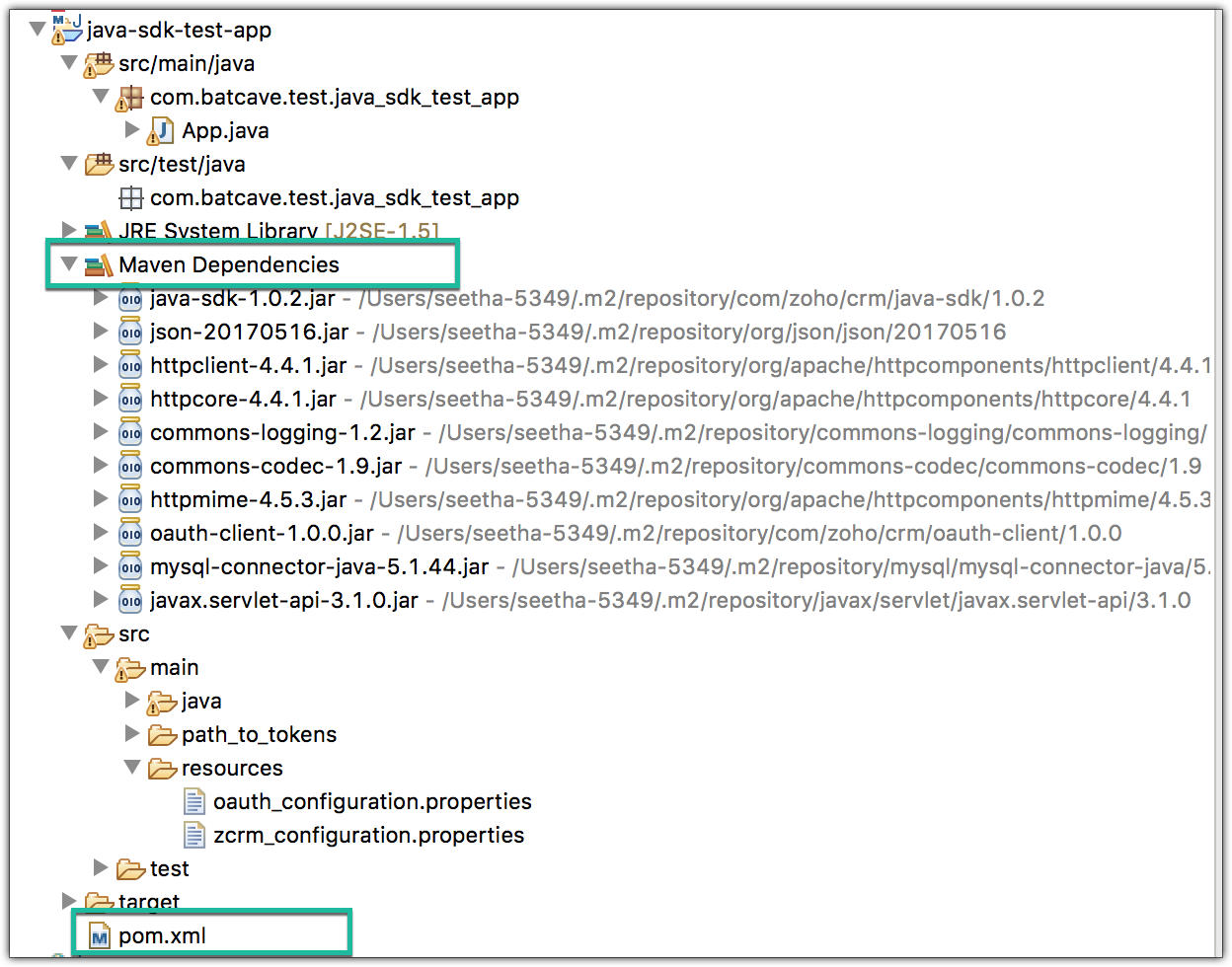Java SDK - Overview
Java SDK offers a way to create client java applications that can be integrated with Zoho CRM. This SDK makes the access and use of necessary CRM APIs with ease. In other words, it serves as a wrapper for the REST APIs, making it easier to use the services of Zoho CRM.
A point to note would be that the developer of the client application should create programming code elements along with configuration-related properties files, interface implementations, instances or objects. Authentication to access Zoho CRM APIs is through Oauth authentication mechanism. Invariably, HTTP requests and responses are taken care by SDK.
A sample of how an SDK acts a middle ware or interface between Zoho CRM and a client java application.
Java SDK allows you to:
- Exchange data between Zoho CRM and the client application where the CRM entities are modelled as classes.
- CRM API equivalents are declared and defined as simple member methods in your java application.
- Push data into Zoho CRM, by accessing appropriate APIs of the CRM Service.
 Note
NoteFor the sake of better explanation, we have used Eclipse to describe how to get started on using the SDK.
Environmental Setup
Java SDK requires the following dependencies to be setup in your development environment:
- Java (Version 7).
- A Java programming IDE (Eclipse or IntelliJ with Java 7 version).
Including the SDK in your project
Java SDK is available through Maven distribution. You can include the SDK to your project using:
- Maven
- Gradle
- Downloadable JARs (by Zoho)
Maven Distribution
Maven is a build automation tool used primarily for Java projects. Maven addresses two aspects of building software: first, it describes how software is built, and second, it describes its dependencies.
If you are using Maven to build your project, we already have the dependencies set up.
You just need to include the following in your pom.xml file, which will get created once your Java project is created using Maven.

- <repositories>
- <repository>
- <url>https://maven.zohodl.com/</url>
- </repository>
- </repositories>
- <dependencies>
- <dependency>
- <groupId>com.zoho.crm</groupId>
- <artifactId>java-sdk</artifactId>
- <version>1.0.3</version>
- </dependency>
- </dependencies>
Gradle
- repositories {
- maven { url "https://maven.zohodl.com/" }
- }
- dependencies {
- implementation 'com.zoho.crm:java-sdk:1.0.3'
- }
Downloadable JAR file
This version downloads simply the SDK without dependent jars. In this case, the following jars are to be made available by adding them in the referenced libraries of your java application. The jars can be downloaded from here.
The list of dependency JARs that you need are:
- hamcrest-all-1.3
- httpclient-4.4.1
- httpcore-4.4.4
- httpmime-4.5.3
- json-20170516
- servlet-api-2.5
- commons-logging-1.1.3
- mysql-connector-java-5.1.44-bin.ja
Related Articles
Node JS SDK - An Overview
Node JS SDK offers a way to create client node js applications that can be integrated with Zoho CRM. This SDK makes the access and use of necessary CRM APIs with ease. In other words, it serves as a wrapper for the REST APIs, making it easier to use ...Java SDK - Overview
Java SDK offers a way to create client java applications that can be integrated with Zoho CRM. This SDK makes the access and use of necessary CRM APIs with ease. In other words, it serves as a wrapper for the REST APIs, making it easier to use the ...Python SDK - An Overview
Python SDK offers a way to create client python applications that can be integrated with Zoho CRM. This SDK makes the access and use of necessary CRM APIs with ease. In other words, it serves as a wrapper for the REST APIs, making it easier to use ...Configuration - Java SDK
Setting up the configuration is a system engineering process, for establishing and maintaining the consistency of the application's performance, functional and physical attributes with its requirements, design and operational information throughout ...Persistence - Java SDK
Persistent classes in an application implement the entities of the business problem. In Java SDK, two default persistence classes with their implementations are provided. On the other hand, if a developer wants his specific implementation, he can ...